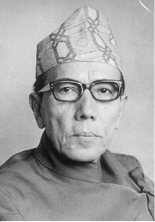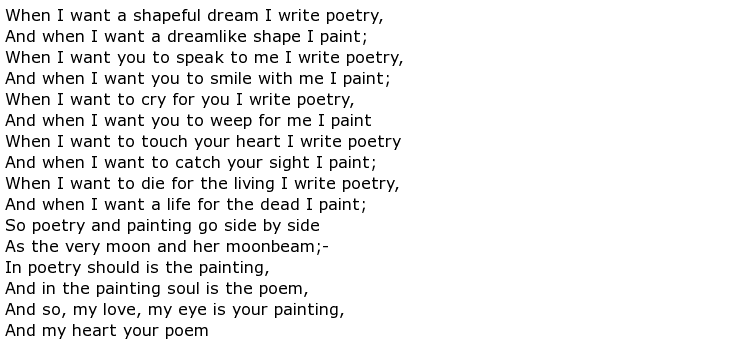 The history of literature in Nepal shows that work was predominantly written in Sanskrit. This changed in the 1920s and 1930s when two Nepalese writers combined the old ways with an English style of writing. Balkrishṇa Sama, and his good friend LakṣmIprasad Devkoṭa, adopted a primarily western style producing short stories, tragic dramas and prose poetry. As writers all over the world have done for centuries, Sama wanted to highlight the social problems in his country by writing about them, in verse. He was inspired by the likes of Henrik Ibsen and his work portrayed the agonies of love and relationships, tyranny and oppression as well as patriotism towards their mother country.
The history of literature in Nepal shows that work was predominantly written in Sanskrit. This changed in the 1920s and 1930s when two Nepalese writers combined the old ways with an English style of writing. Balkrishṇa Sama, and his good friend LakṣmIprasad Devkoṭa, adopted a primarily western style producing short stories, tragic dramas and prose poetry. As writers all over the world have done for centuries, Sama wanted to highlight the social problems in his country by writing about them, in verse. He was inspired by the likes of Henrik Ibsen and his work portrayed the agonies of love and relationships, tyranny and oppression as well as patriotism towards their mother country.
Balkrishṇa Sama was born in February 1903 into a wealthy, aristocratic military family. His father was a general and it was inevitable that the son would follow the father into the Army. Sama’s education at Tri Chandra College were interrupted when, against his will, he was ordered to attend military training. He did well in the Army, rising to the rank of Lieutenant Colonel. This was somewhat surprising though as he clearly had little stomach for the old autocratic ways of his country that were personified by the strong military regime.
Indeed, at an early age he dropped his long surname (see that of his father above) and adopted “Sama” as a form of protest against the atrocities that he had seen committed against ordinary Nepalese people by the Rana rulers. The name Sama actually means “equal” but this is surely a great example of the man’s humility. He wanted the world to regard him as someone of the same common status as his countrymen although history was to show that he should be placed very highly among the great men of Nepal’s history.
In addition to the poetry that he wrote, Sama became known in some quarters as the “Nepalese Shakespeare”. His dramatic works were very well regarded, especially a human rights play that was written in 1953 called Bhater. This was one of many plays that highlighted Nepal’s social problems. Additionally he wrote about religious and philosophical subjects as well as emotional and romantic matters, as evidenced in Mukunda Indira and Mutuko Byatha.
Sama favoured long, epic style poems and two examples of these are Aago Ra Paani and Chiso Chulho. A shorter one is this romantic piece called When I Want a Shapeful Dream:

He also wrote short stories and the occasional biography. His busy life included teaching Nepali literature and language at his old college (Tri Chandra) and, he took the post of director of Nepal Radio in 1955, . His final work assignment before retirement in 1971 was Vice-Chancellor of the recently established Royal Nepal Academy.
Retirement probably gave Sama more time to concentrate on his poetry and many of them were published in highly respected Nepalese publications such as Madhuparka and Ramjham. Although a good deal of his work was published and enjoyed there remained a significant proportion that was never seen by anyone.
His work earned him a number of honours and awards in his home country including, in 1972, Nepal Rajakiya Pragya Prathistan’s Tribhuwan Puraskar. Shortly before his death he received Pragya Pratisthan’s most prestigious award.
Balkrishṇa Sama passed away in 1981. He was 78 years old.

